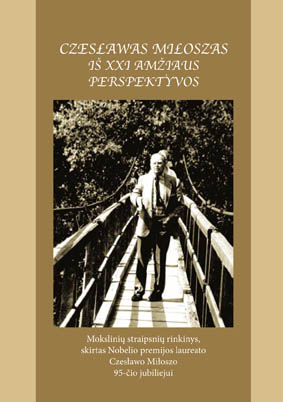Daugtaškis ir pasaulio pabaiga, arba Miłoszo sentimentai Gałczyńskiui
The Elipse and the End of the World, or On Miłosz’s Fondness of Gałczyński
Author(s): Krzysztof ZajasSubject(s): Literary Texts
Published by: Vytauto Didžiojo Universitetas
Keywords: Czesław Miłosz; konferencija; conference; Kaunas
Summary/Abstract: It is difficult to imagine such an antitype as that of the artistic production between Czesław Miłosz and Konstanty Ildefons Gałczyński. For example, Miłosz, the author of A Treatise on Poetry, who deeply and fundamentally investigated the ideological and historical entanglements of the artist during the era of ‘delirious totalitarianisms’, while at the same time the writer of The Green Goose completely mocked and used these involvements in ideology and history for his own artistic purpose. Miłosz regarded poetry as a complicated tool to be used in grasping an elusive reality. Gałczyński, on the other hand, turned that reality and the world into a farse with the aid of the poetic pen. The former seemed to create with great intellectual effort, philosophical toil, and unfulfilled passion. The latter wrote with charming levity and play. Miłosz was dark, full of multiple meanings, difficult to understand, and elitist. Gałczyński, in contrast, prided himself on his simplicity, which won over the masses of his admirers. However, situated as they are on opposite sides and attitudes towards literary styles and resources, in the most fundamental ritual of poetic phrases, Gałczyński and Miłosz are very similar in outlook. The tools of both poets vary, but the adversary is defined by both on the same operating maxim: the world is not to be embraced. By drawing on completely separate poetic resources, they both pursued the impossible, i.e., transforming the world into poetic language. Miłosz repudiated Gałczyński’s accepted system of values, but he could not ignore the success of the poetry which operated completely in different categories from that of his own. Perhaps it is here the source of the hidden fascination that the later recipient of the Nobel Prize would grant the author of The Green Goose.
Journal: Česlovo Milošo skaitymai
- Issue Year: 2007
- Issue No: 1
- Page Range: 18-30
- Page Count: 13
- Language: Lithuanian

